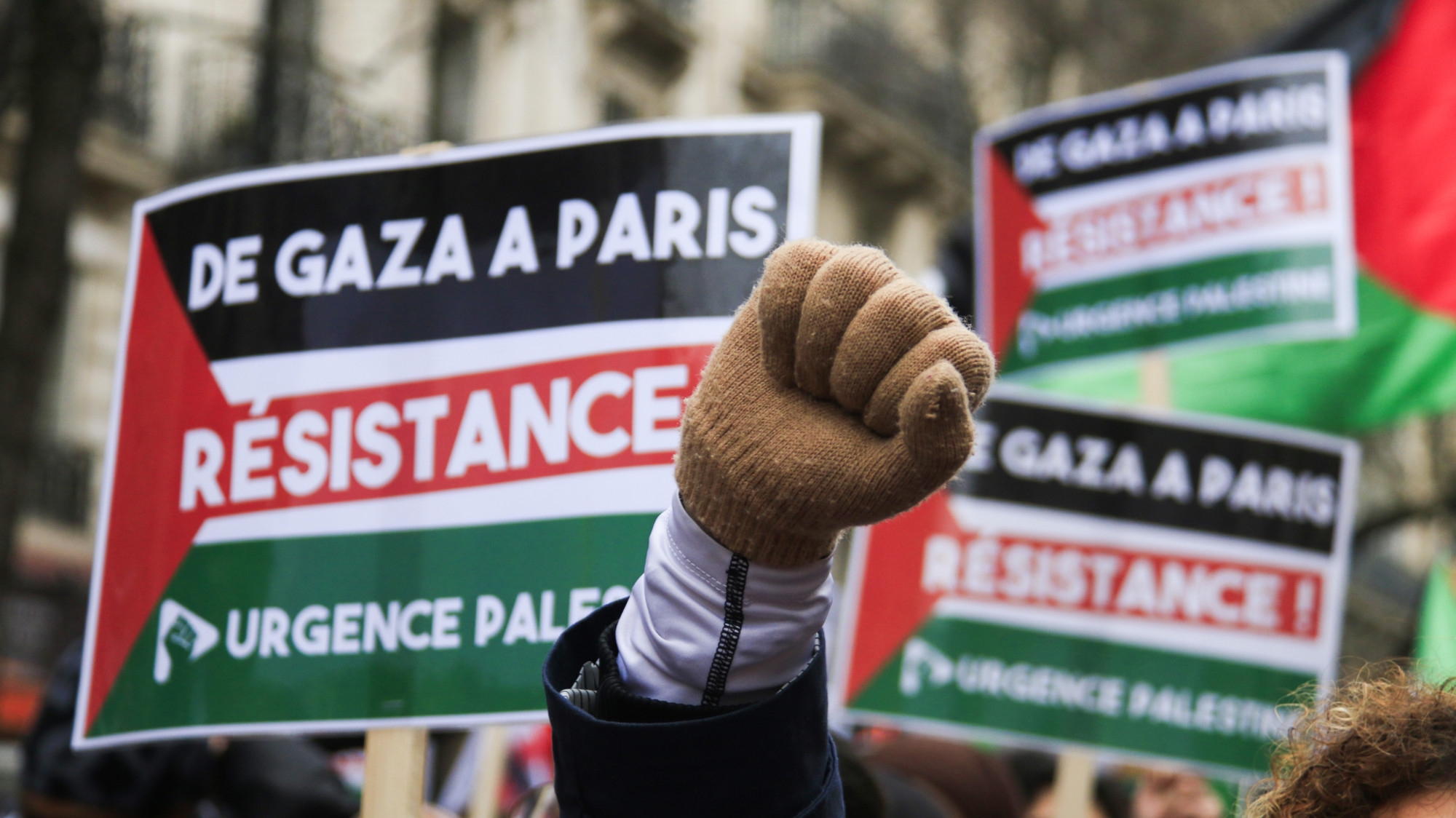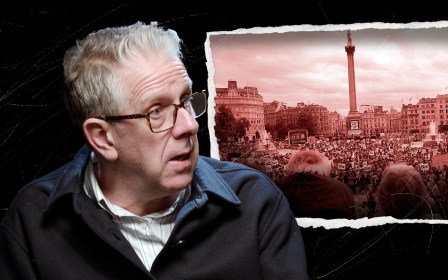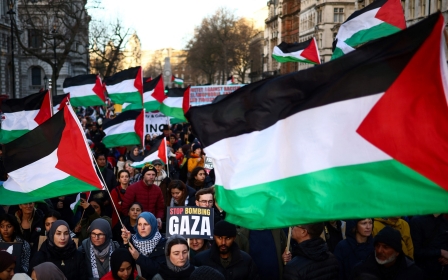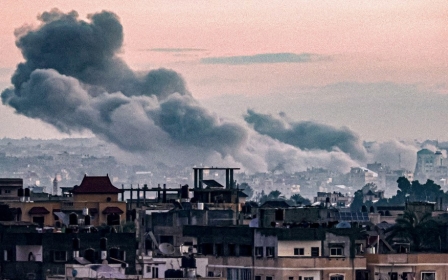War on Gaza: 'Half a million' march in London as part of worldwide pro-Palestine protests

Dozens of cities across the world held protests Saturday as part of a "global day of action" against the Israeli war in Gaza, now in its 99th day.
People in at least 121 cities in 45 countries across Asia, Africa, Europe, Latin America and North America were set to participate in the pro-Palestine rallies.
Spearheaded by a coalition of British organisations, the worldwide action seeks to "intensify international pressure for a permanent ceasefire and dismantle Israeli apartheid".
In the UK, organisers said 500,000 people joined the rally in the capital London.
Crowds marched towards Parliament Square, chanting slogans calling for an end to "genocide and apartheid".
Stay informed with MEE's newsletters
Sign up to get the latest alerts, insights and analysis, starting with Turkey Unpacked
Dipesh Kothar, 37, told AFP it was "very frustrating to sit and watch the world do nothing" as the war was set to enter the 100th day with no end in sight.
"That's why we come out to show support for the Palestinian people and show our unhappiness with the governments around the world," Kothar said.
The Palestinian Forum in Britain, one of several British groups organising the campaign, said earlier this week the protests are an attempt to send a "resounding message that the world demands change, justice, and a future free from violence".
Other groups organising the protests include Friends of Al Aqsa (FOA), the Muslim Association of Britain, Stop the War Coalition, the Palestine Solidarity Campaign and the Campaign for Nuclear Disarmament.
The groups led the anti-Iraq war protests on 15 February 2003 that took place in more than 600 cities and drew in millions of demonstrators.
Protests were also reported in South Africa, Japan, South Korea, Indonesia, Thailand, Malaysia, Australia, France and Germany - among others.
Thousands of demonstrators also gathered in the US capital Washington DC to call for a ceasefire in Gaza.
Pictures posted online showed demonstrators holding various signs including some saying “Stop funding apartheid now” and “Free Palestine”.
The demonstrations take place a day before the 100th day of Israel's attacks in Gaza. These have rendered at least four percent of Gaza's population either killed, missing or wounded.
The onslaught and siege have devastated the Palestinian enclave, pushing it to the brink of humanitarian disaster, with the population facing widespread displacement, diseases and the risk of famine.
At least 23,843 people have been killed overall, the majority of them children and women.
A further 60,000 have been wounded, and more than 7,000 remain missing, believed to be dead and buried under rubble.
In Israel, at least 1,300 people have been killed during Palestinian attacks and in fighting during and since 7 October, including at least 30 children and 300 women.
Follow Middle East Eye's live coverage of the Israel-Palestine war
Saturday's protests come amid a lack of progress in reaching a ceasefire agreement or finding international consensus to end the war.
The US, a staunch ally of Israel, has vetoed two UN Security Council resolutions since 7 October calling for a ceasefire.
Meanwhile, indirect negotiations between Hamas and Israel have hit an impasse, with the Palestinian movement demanding a permanent ceasefire and Israel offering only temporary pauses.
In a last-ditch effort, South Africa in December filed a case against Israel at the International Court of Justice accusing it of genocide in the ongoing war.
South Africa requested the court issue an interim injunction calling on Israel to halt its military operations in the besieged enclave.
Such a provisional ruling, on which a decision is expected within weeks, is not enforceable but could cause great reputational harm to Israel and increase pressure to end the war.
Middle East Eye delivers independent and unrivalled coverage and analysis of the Middle East, North Africa and beyond. To learn more about republishing this content and the associated fees, please fill out this form. More about MEE can be found here.




